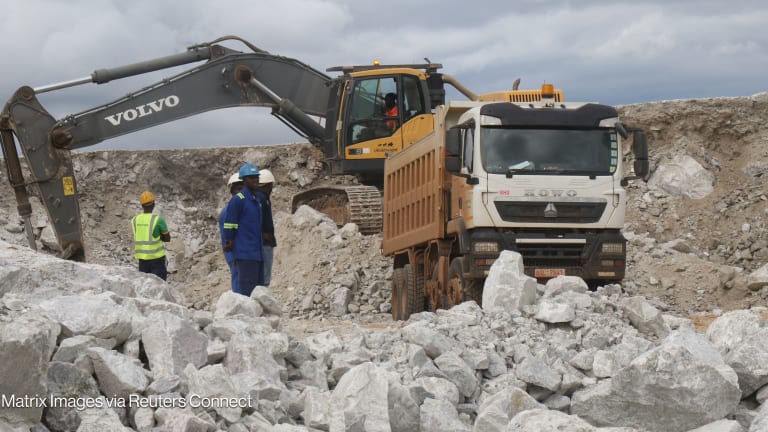
South Africa’s clean energy transition has reached the “tangible implementation” phase after signing two loan agreements with German and French development agencies that will be disbursed early next year, Daniel Mminele, head of the Presidential Climate Finance Task Team, told Devex.
Last year in Glasgow, at the 26th United Nations Climate Change Conference, South Africa agreed with European nations and the United States on a framework to decommission coal plants. Recent announcements of funding from the Climate Investments Fund and the World Bank put that project on track.
South Africa’s Treasury confirmed the terms of the loan agreements with Germany and France, which are highly concessional. Each country has put up €300 million repayable over 20 years, with France offering a 3.6% interest rate and Germany giving a 3%.
The terms are far better than could be obtained on capital markets, both in terms of the interest rates and the repayment periods. At market prices, South Africa would likely need to borrow at interest rates nearly three times the German offer.
“We need to make sure that there is a high level of concessionality to the funding,” said Mminele speaking at a Devex event on the sidelines of COP 27 in Sharm el-Sheikh, Egypt. The “yardstick to that effect was that these funds need to be obviously at rates that are more competitive than the market,” he added.
However, Mminele also issued a few words of caution, noting that the energy transition cannot have disastrous second-order consequences for developing countries.
“We make sure that in trying to solve one problem around climate risk and climate change, we don't inadvertently cause another one by loading up on climate-related debt,” he said. The transition process has to be “country-led,” meaning that governments are in control, and not ceding the steering wheel to donors, he stressed.
Last month, South Africa closed the Komati coal-fired Power Station, in the Mpumalanga region, which had been operating for more than half a century. It is just the first of several to go offline and be replaced by cleaner energy, including renewables, but it will be costly.
Even concessional loans, which are at significant discounts to market rates, need to be returned with interest.
South Africa estimates that $85 billion is needed for its transition over the next five years — and more later. “The transition journey overall is a multi-decade journey, which requires even more funding,” Mminele said.
Part of the money will go toward reskilling workers and ensuring that downstream from the power generation points, such as the local level, there is capacity to handle the overhauled electricity system at the municipal level.
During a recent interview with Devex, U.S. Treasury’s Alexia Latortue noted that countries must be able to ensure jobs for workers in the so-called just energy transition, and insisted Washington is looking at additional concessional funding options for middle-income nations.
World Bank President David Malpass said in an interview that he is embracing calls to reform the development banks. The anti-poverty lenders are considered a key channel for moving more capital to countries in need of cheaper financing to fight climate change, though critics say the institutions have often been too slow to address the challenges.








